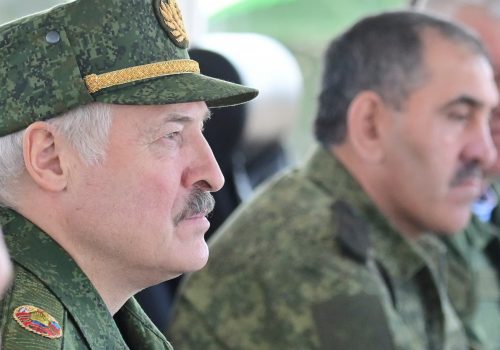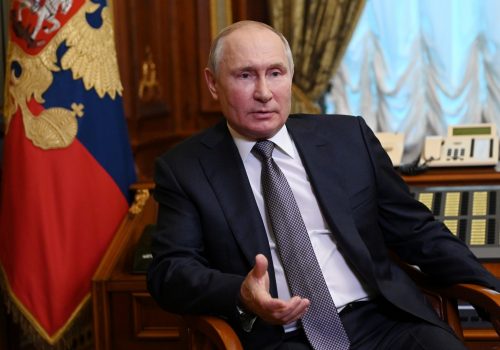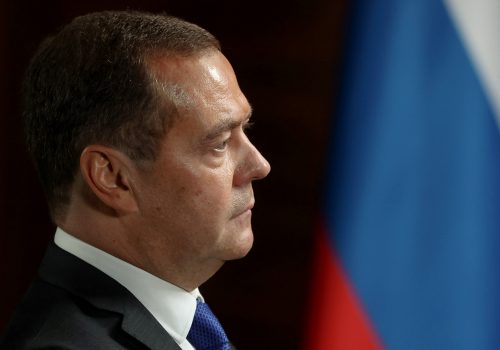Ukraine is resolutely opposed to any energy infrastructure projects that threaten the country’s national security, attempt to sidestep EU regulations, or undermine Europe’s energy architecture. Having learned that Nord Stream 2 AG had applied for certification with the German energy regulator Bundesnetzagentur (BNetzA), Ukraine’s gas transmission system operator, GTSOU, had no choice but to request that the risks to Ukrainian security be taken into account.
Long before the Russian invasion of Ukraine began seven years ago, Moscow’s campaign against Ukrainian sovereignty had included political and economic pressure. Energy supplies were often central to these efforts. In 2014, with the occupation of Crimea and military intervention in Luhansk and Donetsk regions, Russia dramatically escalated its aggression against Ukraine. Continuity of international gas transit at a significant level remains our strongest non-military barrier to further escalation. And as a citizen of a country at war, I can’t emphasize this enough.
Military action in the Donbas region of eastern Ukraine has already made two gas interconnection points on the Russian-Ukrainian border inaccessible. What will happen to the simmering front line of the unresolved conflict with Russia if Moscow no longer depends on the Ukrainian gas transit network to reach EU markets? How significant is the risk of escalation when the termination of transit via Ukraine no longer means freezing homes in Europe? At GTSOU, we take these questions very seriously.
Stay updated
As the world watches the Russian invasion of Ukraine unfold, UkraineAlert delivers the best Atlantic Council expert insight and analysis on Ukraine twice a week directly to your inbox.
The second major threat posed by Nord Stream 2 is the risk of gas shortages on the domestic Ukrainian market. If this new pipeline is allowed to enter operation under Gazprom control and without effective third-party access, we have no doubt that gas deliveries to Europe through Ukraine will cease completely or, at best, will be severely reduced.
Furthermore, the Russian Federation has repeatedly relied on Gazprom’s control of exports to extort political concessions from Ukraine. Certification of NS2 AG as the operator of NS2 will significantly affect GTSOU’s ability to fulfill its security of supply obligations. It will expose Ukraine, Moldova, and other neighboring countries to energy extortion by the Kremlin.
The termination of international transit will immediately deprive five Ukrainian cities on the Ukrainian-Russian border of gas. For the rest of Ukraine, we estimate that gas deficits could reach 20% during periods of peak demand. At present, Ukraine has only one point with guaranteed capacity for gas imports from the EU.
As a state-owned enterprise, we are a commercial entity keenly aware of a third threat to our ability to operate and maintain our infrastructure in its present configuration. 80% of GTSOU’s income derives from international activities, with the rest covered by the domestic market. In a no-transit scenario, the cost of maintaining Ukraine’s pipeline infrastructure would fall on Ukrainian consumers, which will have inevitable implications for tariffs. This is a topic of great political significance.
Without long-term clarity on gas volumes and full assurances on the continuity of transit, the pipeline operator would have to optimize and downscale significant parts of the GTS. It would be neither fair nor realistic to expect Ukrainian consumers to pick up the bill for idle infrastructure. Sections of the network would need to be re-equipped for future gas flows in a west-east direction for Ukraine to import gas from Europe. To widen the import options into Ukraine, direct access to the Central European gas hub in Baumgarten (Austria) would be critical.
Scaling down the transit capacity of the Ukrainian GTS would reduce or eliminate the possibility of transporting hydrogen or other renewable gases from Ukraine to Europe. In this manner, Ukraine would lose the chance to join the Europe-wide decarbonization movement and miss out on the significant economic opportunities this presents. The pipeline system will not wait for the complete replacement of gas with hydrogen. Efficient operation and preparation for a future hydrogen role depends on continued gas transit for the next 10-20 years.
Eurasia Center events

Having previously served as a Ukrainian MP, I am proud of how much we were able to achieve in a relatively short space of time on the energy reform front. Our gas transmission services have been fully unbundled from production and trading, and Ukraine is now entirely compliant with European gas legislation.
Furthermore, the accession of Ukraine and its underground storage facilities to the European gas market enhances the flexibility and security of gas supply for all EU member states. Ukraine has done much to deserve the good reputation it currently enjoys as a reliable partner in the energy sector.
Meanwhile, Russia has demonstrated time and again its willingness to use energy as a geopolitical weapon. Any exemptions for Nord Stream 2 AG in the certification process will only embolden Gazprom further while weakening the energy security of Ukraine and the rest of Europe.
Without a doubt, GTSOU has a stake in the certification of Nord Stream 2 AG. Polish state energy company PGNiG has already been admitted to take part in the certification procedure. We believe it is only right that Ukraine also participates in this process.
Olga Bielkova is director of government and international affairs at Ukraine’s gas transportation system operator GTSOU and a former member of the Ukrainian parliament (2012-2020).
Further reading
The views expressed in UkraineAlert are solely those of the authors and do not necessarily reflect the views of the Atlantic Council, its staff, or its supporters.

The Eurasia Center’s mission is to enhance transatlantic cooperation in promoting stability, democratic values and prosperity in Eurasia, from Eastern Europe and Turkey in the West to the Caucasus, Russia and Central Asia in the East.
Follow us on social media
and support our work
Image: Ukraine has requested a role in the certification process for Russia's Nord Stream 2 pipeline. (imago images/Christian Ohde via Reuters Connect)




